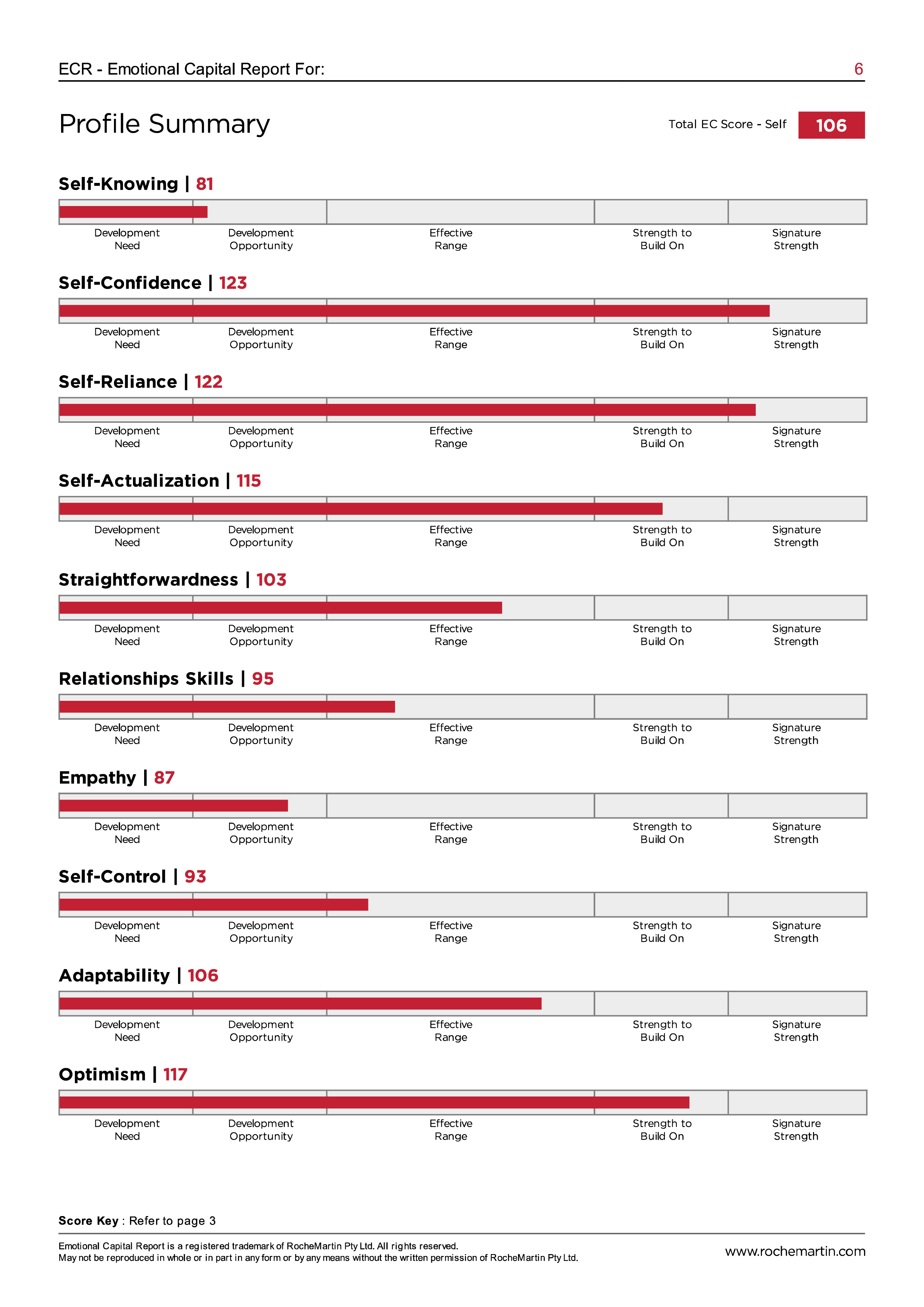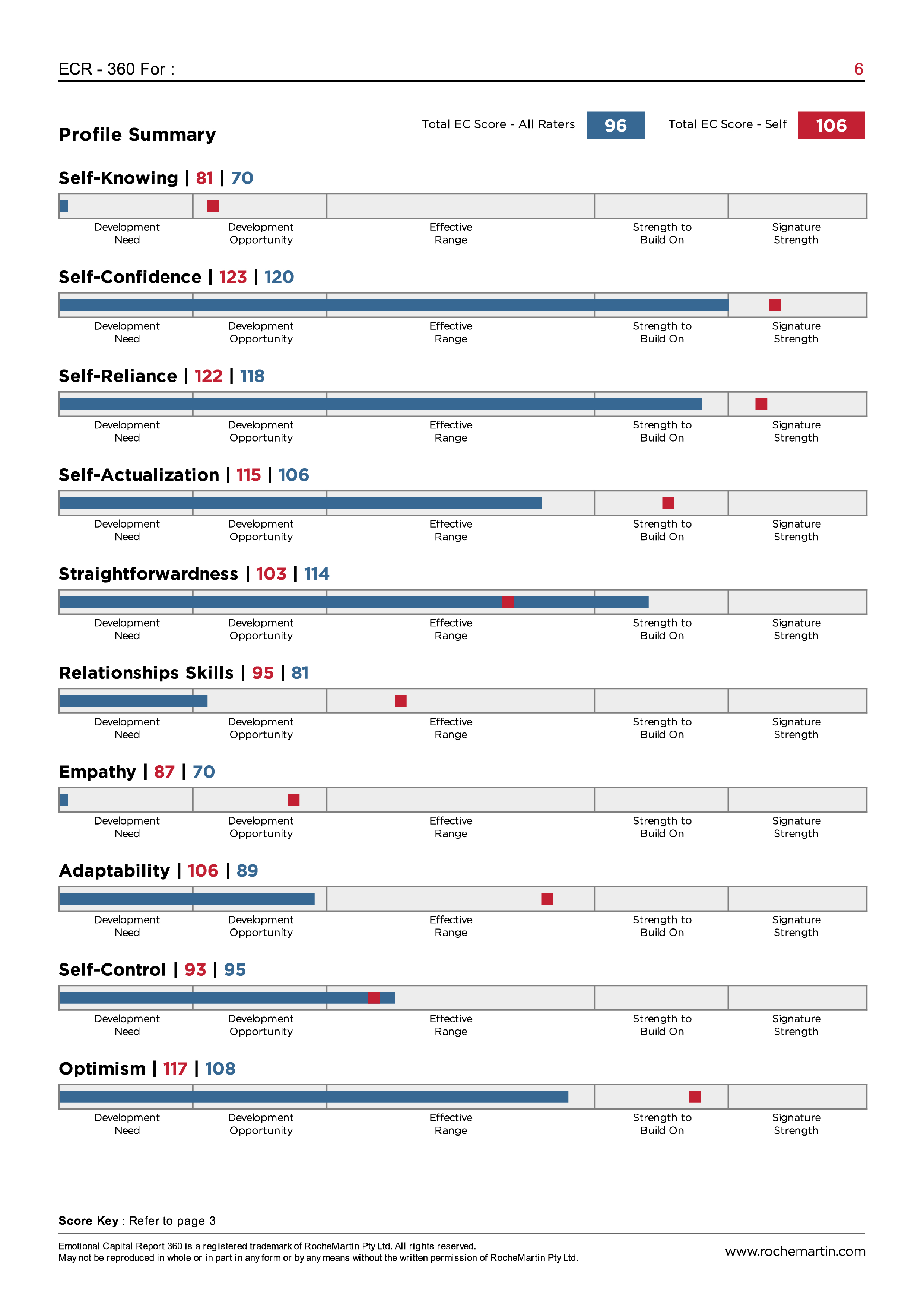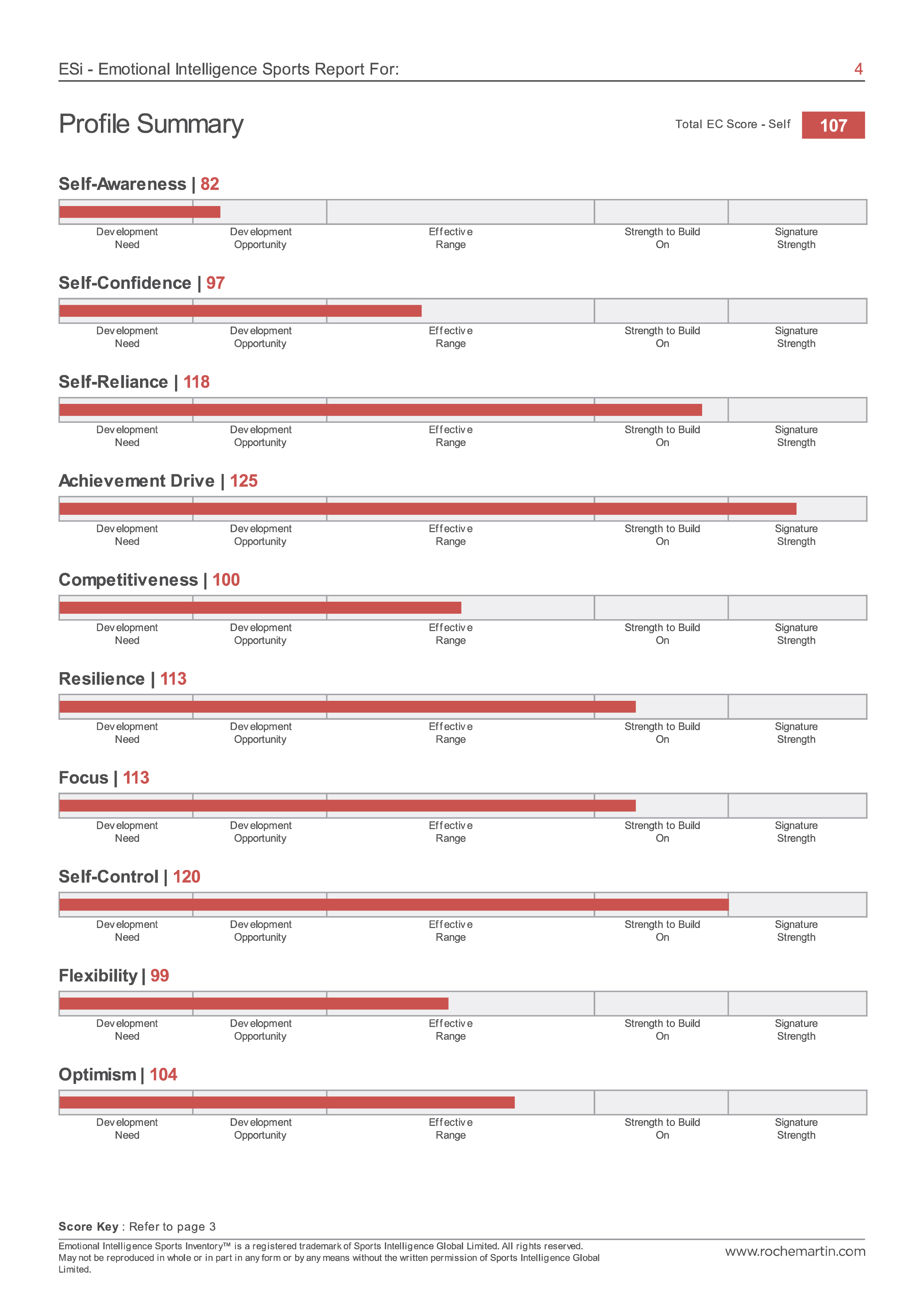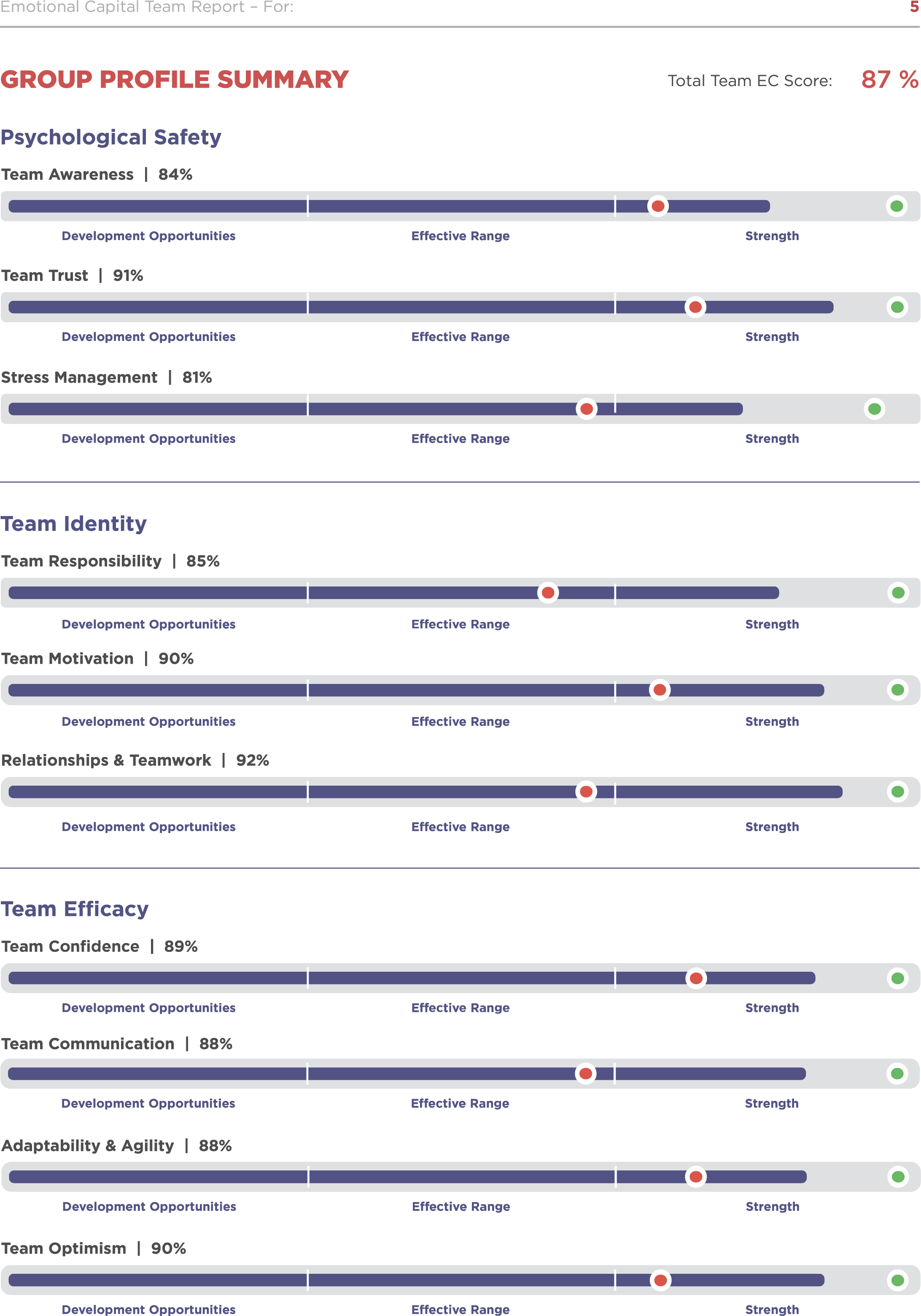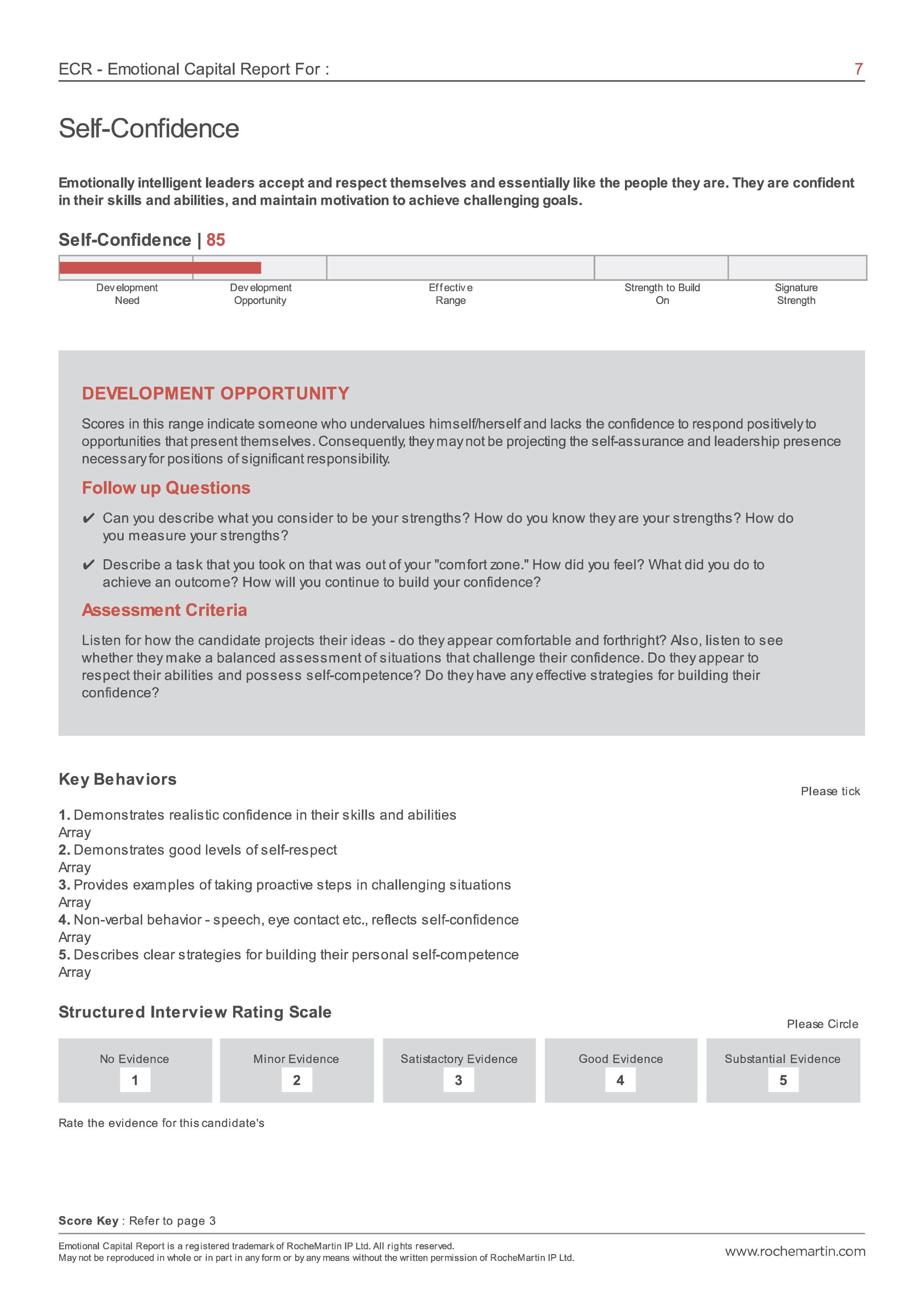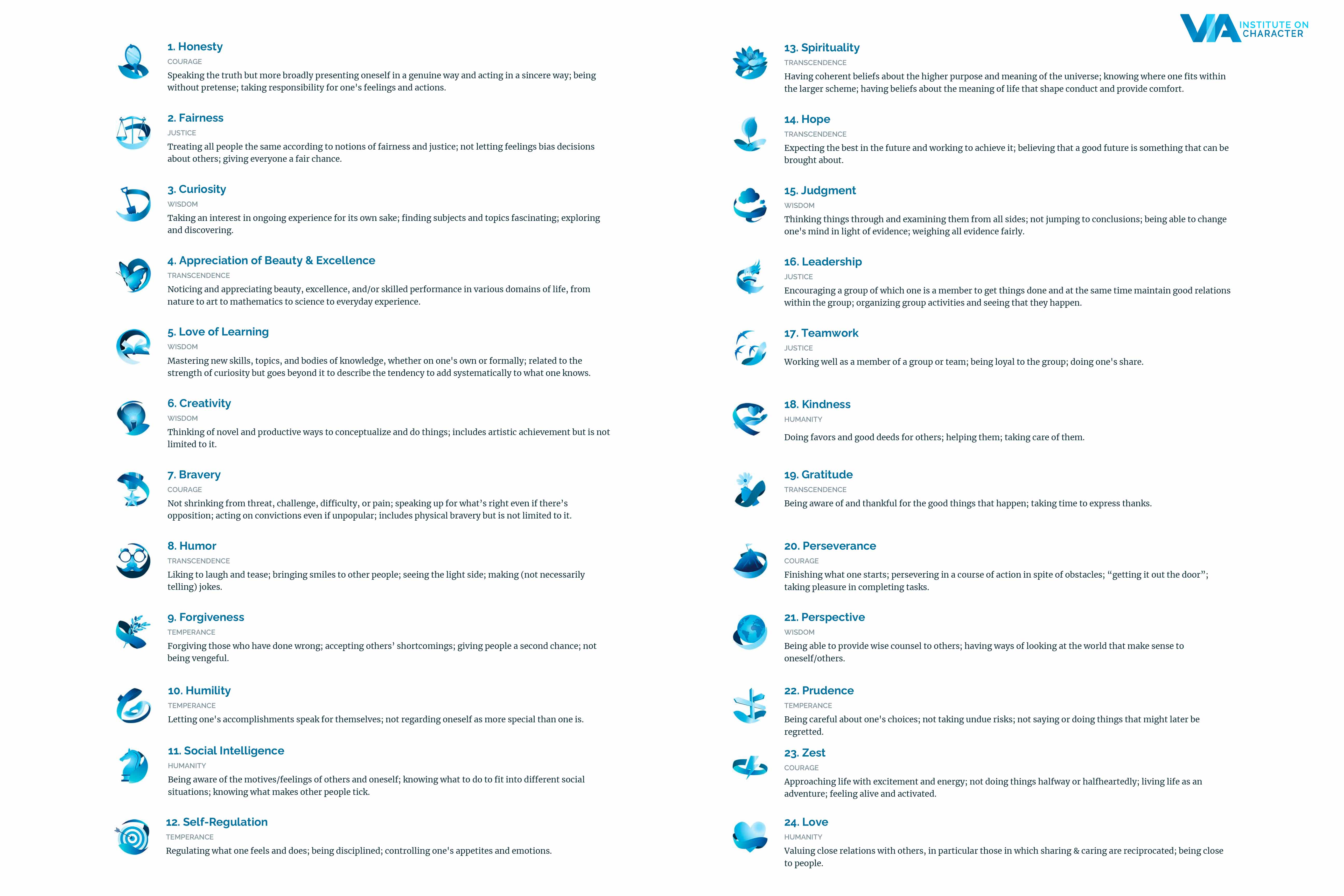Get curious about the graph and how it is structured. This typology of Questionnaire is undertaken by the candidate autonomously, with a calm and genuine attitude (the positive impact score will detect if the responses are genuine). On the side You can see the graph only, the full report is 20 pages in which each soft skill has its own page with an extended explanation of what the skill means, the interpretation of the value obtained from the test (it changes depending upon what the bar shows), and a coaching suggestion about the skill.
The interaction with the EI coach helps interpret the skills-combination, having a deeper insight in regard to what behaviours are likely to show up when these different skills act together, in relation to their predominancy shown by the report. At the end of the full report, there is the “Action Plan” with seven points, where the EI coach and the candidate rationalise the skills to strengthen and how to strengthen them using coaching tools and real-life alternative behaviours and activities. The 20 pages report is the self-learning part. After the delivery session, the candidate/client/athlete receives the full report having the chance for deepening the knowledge.
The test is delivered in five hours: the first meeting by one hour is ice-breaking and informational, then the candidate undertakes the test which is delivered only to the EI coach, the delivery session and set of activities last two hours and the follow-up session also two hours, arranged after two weeks.



